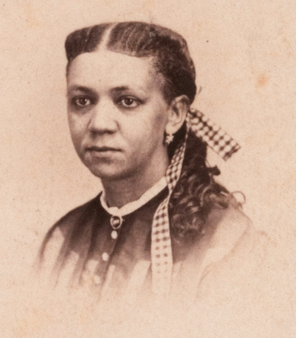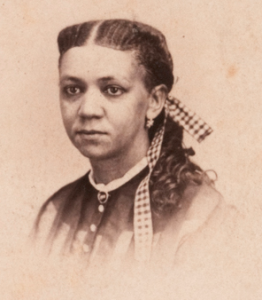
Podcast: Play in new window | Download
Subscribe: RSS
 January 21, 2014 – Segment 1
January 21, 2014 – Segment 1
Marc shares some of what happened on this day in history, including the day Fanny Jackson Coppin, one of the first black women to graduate from college, passed away, Altagracia Day in the Dominican Republic, and the birthday of musician Richie Havens.
Today is:
Errol Barrow Day is a Barbadian public holiday celebrated on 21 January, to commemorate the former Prime Minister of Barbados, who helped lead his country to independence from the United Kingdom.
Quebec’s Flag Day (January 21) commemorates its adoption each year, though for some time it was celebrated in May. The flag of Quebec, called the Fleurdelisé, was adopted for the province by the government of Quebec, during the administration of Maurice Duplessis. It was the first provincial flag officially adopted in Canada, first shown on January 21, 1948, at the Parliament Building of the National Assembly in Quebec City.
Día de la Altagracia, or Altagracia Day, is a day commemorating “Our Lady of Altagracia”, patronal image and protector of the people of the Dominican Republic. It is a feast day and annual public holiday on January 21. “Our Lady of Altagracia” is a portrait of the Virgin Mary painted in the 16th century. The portrait is kept in The Basilica of Our Lady of Altagracia in the city of Salvaleón de Higüey.
National Hug Day or National Hugging Day is an annual unofficial event devised by Rev. Kevin Zaborney now residing in Caro, Michigan USA. It occurs on January 21 but is not a public holiday. The day was launched on January 21, 1986 in Clio, Michigan, USA.
On this day in history:
763 – The Battle of Bakhamra between Alids and Abbasids near Kufa ends in a decisive Abbasid victory.
1525 – The Swiss Anabaptist Movement is founded when Conrad Grebel, Felix Manz, George Blaurock, and about a dozen others baptize each other in the home of Manz’s mother in Zürich, breaking a thousand-year tradition of church-state union.
1535 – Following the Affair of the Placards, French Protestants are burned at the stake in front of the Cathedral of Notre-Dame de Paris
1674: Father Pierre Millet “foretells” the coming of today’s lunar eclipse, using an almanac. Challenging IROQUOIS shamen to predict the time or date of the eclipse, which they don’t, Millet will make religious inroads among the IROQUOIS by his successful prediction.
1698: French missionary Father de Montigny reaches the TAENSA Indian village on the Mississippi River, today. He will stay with them to instruct them in his religion.
1789 – The first American novel, The Power of Sympathy or the Triumph of Nature Founded in Truth, is printed in Boston, Massachusetts.
1840 – Jules Dumont d’Urville discovers Adélie Land, Antarctica.
1841 – P. D. Smith, inventor, patented the Potato Digger on this date in 1891. This instrument helped with efficiency and increased the harvest of potatoes.
1861 – American Civil War: Jefferson Davis resigns from the United States Senate.
1864 – The Tauranga Campaign begins during the Maori Wars.
1893 – The Tati Concessions Land, formerly part of Matabeleland, is formally annexed to the Bechuanaland Protectorate, now Botswana.
1901 – Emirs of Kontagora and Bida are defeated by British forces in the continuing campaign against the Sokoto Caliphate.
1908 – New York City passes the Sullivan Ordinance, making it illegal for women to smoke in public, only to have the measure vetoed by the mayor.
1919 – Meeting of the First Dáil Éireann in the Mansion House Dublin. Sinn Féin adopts Ireland’s first constitution. The first engagement of Irish War of Independence, Sologhead Beg, County Tipperary.
1925 – Albania declares itself a republic.
1931 – Sir Isaac Isaacs is sworn in as the first Australian-born Governor-General of Australia.
1941 – Sparked by the murder of a German officer in Bucharest, Romania, the day before, members of the Iron Guard engaged in a rebellion and pogrom killing 125 Jews.
1942 – Rommel begins a new offensive against the Allies in North Africa, hoping to push them back to the east.
1946 – Some 750,000 steel workers walk out in 30 states, largest strike in U.S. history to that time
1950 – American lawyer and government official Alger Hiss is convicted of perjury.
1961 – Ahmed Sékou Touré is elected president of the republic of Guinea.
1961 – 435 workers are buried alive when a mine in Coalbrook, Free State collapses.
1962 – Julius Kambarage Nyerere, Tanganyikan president, resigns because of opposition to his policies. He spends the year converting the Tanganyikan African National Union, TANU, into a governing party in preparation for the republic.
1964 – Columnist Carl T. Rowan was named Director of the U.S. Information Agency
1968 – Vietnam War: Battle of Khe Sanh – One of the most publicized and controversial battles of the war begins.
1974 – Postal workers begin four-day strike at the Jersey City, N.J., bulk and foreign mail center, protesting an involuntary shift change. The wildcat was led by a group of young workers who identified themselves as “The Outlaws”
1977 – President of the United States Jimmy Carter pardons nearly all American Vietnam War draft evaders, some of whom had emigrated to Canada.
1992 – The UN orders Libya to hand over two suspects linked to the Lockerbie bombing (Pan Am 103).
1997 – The U.S. House of Representatives votes 395–28 to reprimand Newt Gingrich for ethics violations, making him the first Speaker of the House to be so disciplined.
1999 – War on Drugs: In one of the largest drug busts in American history, the United States Coast Guard intercepts a ship with over 4,300 kilograms (9,500 lb) of cocaine on board.
2000 – Six hundred police attack picketing longshoremen in Charleston, S.C
2005 – In Belmopan, Belize, the unrest over the government’s new taxes erupts into riots.
Born on this day in history:
1738 – Ethan Allen – Land speculator, philosopher, writer, American Revolutionary War patriot, and politician known as one of the founders of the U.S. state of Vermont.
1824 – Thomas Stonewall Jackson
1868 – Felix Hoffmann – German chemist who discovered the pain-relieving properties of what is now aspirin and heroin.
1902 – Smith Ballew – One of the most popular singing cowboys, he was a famous actor on Paramount’s series of musical westerns.
1924 – Benny Hill, COMEDIAN
1941 – Richie Havens – Folk and blues singer-songwriter and guitarist who was the opening performer at the Woodstock Festival.
On this day in history, we lost:
1819 – Fanny Jackson Coppin, activist, spiritual leader, and educator, died in Philadelphia, PA, on this date in 1913. In 1865, Coppin was one of the first Black women to graduate from college.
Sources: The People History; Wikipedia List of Historical Anniversaries; This Day in Women’s History; This Day in Jewish History; This Day in African History;History.com; History Orb; Yenoba; Phil Konstantin’s North American Indian History; and This Day in Music


 January 21, 2014 – Segment 1
January 21, 2014 – Segment 1

